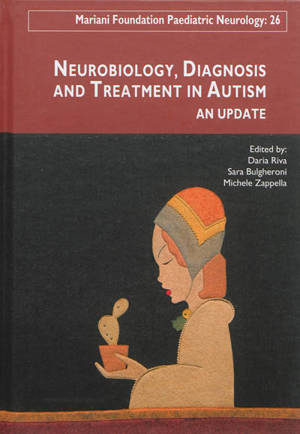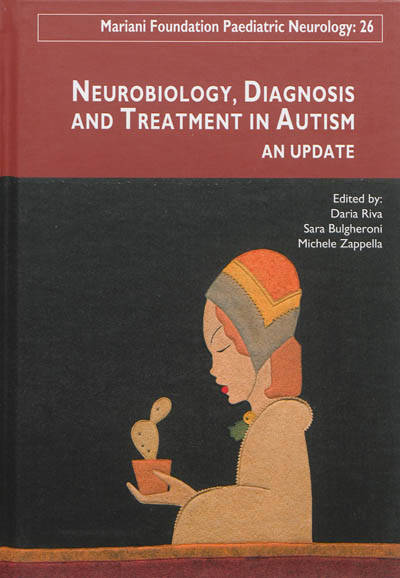
- Retrait gratuit dans votre magasin Club
- 7.000.000 titres dans notre catalogue
- Payer en toute sécurité
- Toujours un magasin près de chez vous
- Retrait gratuit dans votre magasin Club
- 7.000.000 titres dans notre catalogue
- Payer en toute sécurité
- Toujours un magasin près de chez vous
Neurobiology, Diagnosis & Treatment in Autism
An Update
Daria Riva, Sara Bulgheroni, Michele ZappellaDescription
Neurobiology, Diagnosis and Treatment in Autism an update
This volume provides advances in current knowledge on the diagnosis, neurobiology, pharmacologie therapy, and rehabilitation methods in autism, suggesting a potential influence on professional practice and enabling an up-to-date approach to effective diagnosis and treatment.
Autism is an extremely complex neurodevelopmental disorder that is expressed in a spectrum of phenotypes and is characterized by impaired reciprocal social communication and stereotyped patterns of interests and activities. Its aetiopathogenesis remains poorly understood.
It has become clear that causative genes interact with environmental factors in generating the disorder, but the molecular and pathogenic mechanisms causing the expression of the resulting mutations are not at all obvious. The candidate genes implicate an involvement of numerous brain regions and a concomitant malfunctioning of neurotransmitter, immunologic, and other mechanisms. These topics are reviewed in différent presentations. Additionally, since the disorder lasts over the lifetime, other chapters focus on early intervention, discussing the most incisive rehabilitation models in their original formulation and the results achieved with the same or similar protocols in Italian centres.
Finally, strong attention is paid to the psychopharmacologic options for the condition of autism per se and for its associated, very fréquent, comorbidities.
Spécifications
Parties prenantes
- Auteur(s) :
- Editeur:
Contenu
- Nombre de pages :
- 229
- Langue:
- Anglais
Caractéristiques
- EAN:
- 9782742008360
- Date de parution :
- 01-05-13
- Format:
- Livre relié
- Dimensions :
- 176 mm x 248 mm
- Poids :
- 632 g







